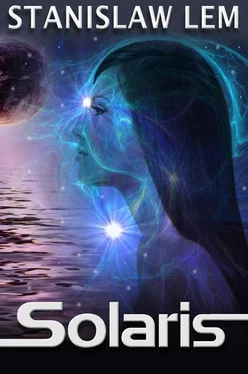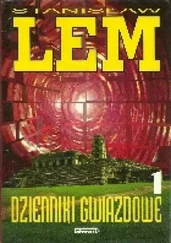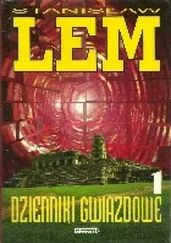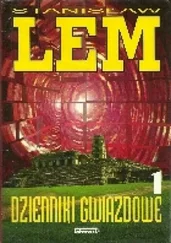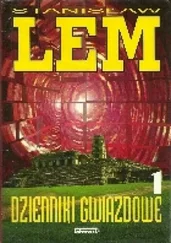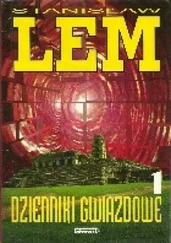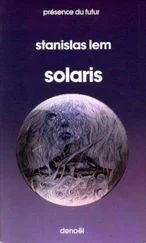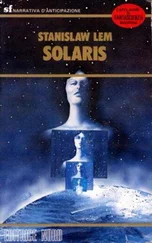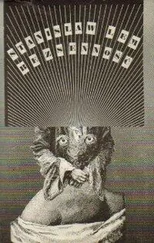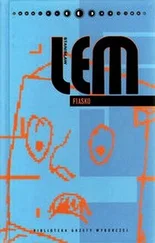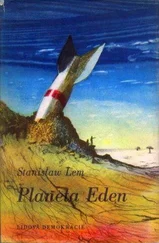Q : Why not?
Berton : Because the content of my hallucinations, however ghastly they might be, is my private matter. Whereas the content of my experiences on Solaris is not.
Q : Does that mean you refuse to answer any more questions until a decision is reached by the appropriate organs of the expedition? You do understand that this committee is not authorized to make any immediate decisions?
Berton : That’s right.
The first transcript ended at this point. There was also an excerpt from a second, recorded eleven days later.
Chairman : … and taking all this into consideration, the commission, comprising three medical doctors, three biologists, one physicist, one mechanical engineer and the second in command of the expedition, has concluded that the incidents described by Berton constitute a hallucinatory syndrome resulting from poisoning by the atmosphere of the planet, a condition in which symptoms of confusion were accompanied by a stimulation of the associative regions of the cerebral cortex; and that these incidents had little or no correspondence in reality.
Berton : Excuse me, what does “little or no” mean? What is “little”? How big is it?
Chairman : Allow me to finish. A separate minority report was filed by Dr. Archibald Messenger, physicist, who testified that what Berton described could in his opinion have happened in reality and deserved careful investigation. That is all.
Berton : I repeat my previous question.
Chairman : The matter is simple. “Little” means that certain real phenomena could have triggered your hallucinations, Berton. On a windy night the most normal person in the world can mistake a swaying bush for a human figure. All the more so on an alien planet, when the observer’s mind is affected by poison. This is no affront to you, Berton. In light of the preceding, what is your decision?
Berton : First, I’d like to know the consequences of Dr. Messenger’s minority report.
Chairman : Practically speaking, there are none. That is to say, no investigation will be undertaken in that regard.
Berton : Is what we are saying going to be transcribed?
Chairman : Yes.
Berton : In that case I wish to say that in my view the commission’s decision is an affront not to me — I’m not important here — but to the spirit of this expedition. As I stated the first time, I will not respond to further questions.
Chairman : Is that all?
Berton : Yes. But I would like to talk with Dr. Messenger. Is that possible?
Chairman : Of course.
That was the end of the second transcript. At the bottom of page there was a note in small print reporting that the following day Dr. Messenger met with Berton and spoke with him privately for almost three hours, after which he wrote to the Expeditionary Board, calling once again for an inquiry into the pilot’s testimony. He stated that this was necessitated by additional new data given to him by Berton, which he could reveal only if the Board agreed to the inquiry. The Board, comprising Shannahan, Timolis and Trahier, turned down the request, and the matter was closed.
The book also contained a photocopy of one page of a letter found in Messenger’s papers after he died. It was probably a rough draft; Ravintzer had been unable to determine whether the letter itself had been sent, or what its consequences had been. The text began:
… their colossal obtuseness. Out of concern for its authority the Board, and specifically Shannahan and Timolis (Trahier’s voice didn’t count), rejected my demands. Now I’m appealing directly to the Institute, but you yourself know such a protest is ineffectual. I’m bound by my word, so unfortunately I can’t tell you what Berton told me. The Board’s decision was of course influenced by the fact that the revelations had come from a person with no academic standing, though a good many researchers would have envied that pilot his presence of mind and gift for observation. Please, send me the following by return mail:
Fechner’s bio information, including his childhood.
Anything you know about his family and family matters; I gather he left behind a small child.
The topography of the region in which he grew up.
I’d also like to give you my own take on all this. As you know, a short time after Fechner and Carucci set out, in the center of the red sun a spot appeared whose corpuscular radiation shut down radio communication, especially, according to data from the Satelloid, in the southern hemisphere; in other words where our Base was. Of all the search parties, Fechner and Carucci went furthest from the Base.
The whole time we’d been on the planet, up until the day of the accident we had never seen such dense, stubbornly lingering fog, accompanied by complete silence.
I think that what Berton saw was part of an “Operation Human” being carried out by the viscous monster. The actual source of all the formations seen by Berton was Fechner — was his brain, in the course of some “mental autopsy” unimaginable to us. This was an experimental re-creation, a reconstruction of certain traces in his memory — probably those that were most enduring.
I know this sounds fantastical; I know I could be wrong. So I’m asking you for help. I’m presently on Alaric, where I’ll be waiting for your response.
Yours, A.
It had gotten so dark I was barely able to read; the book turned gray in my hands, the print began to melt away before my eyes, but the blank space below the text showed I had come to the end of the story, which in light of my own experiences I regarded as highly plausible. I turned toward the window. Outside there was a deep purple, a few clouds smoldering above the horizon like dying embers. The ocean was invisible, swathed in darkness. I heard the subdued flutter of the paper strips over the vents. The heated air, with its faint taste of ozone, had grown lifeless. An absolute silence filled the entire Station. I thought to myself that in our decision to remain, there was nothing heroic. The time of valiant planetary struggles, fearless expeditions, terrible deaths, like that of Fechner, the ocean’s first victim — this era had come to an end long ago. I no longer really cared who had “visited” Snaut or Sartorius. After a time, I thought, we’ll stop feeling embarrassed and hiding ourselves away. If we won’t be able to get rid of our “guests,” we’ll grow used to them and we’ll live with them, and if their Creator changes the rules of the game we’ll adapt to the new ones, even if for a while we’ll kick against the pricks, raise a storm. One or another of us might even commit suicide, but in the end the new state of affairs will also reach equilibrium. The room was filling with a darkness ever more like that on Earth. The only lighter places now were the white shapes of the washbasin and the mirror. I stood up, felt for the wad of cotton wool on the shelf, moistened a ball of it and wiped my face. Then I lay down on my back on the bunk. Somewhere overhead the vent thrummed and fell silent in turn, sounding like a fluttering moth. I couldn’t even make out the window; everything was taken over by blackness. A glimmering streak from who knew where was hovering before me; I couldn’t tell whether it was on the wall or far away in the barrenness beyond the window. I recalled how horrified I’d been at the empty gaze of the Solarian space the previous evening, and I almost smiled. I wasn’t afraid of it. I wasn’t afraid of anything. I brought my wrist close to my eyes. The face of my watch lit up with its phosphorescent ring of figures. In an hour the blue sun would rise. I reveled in the pervasive darkness. I was breathing deeply, liberated from all thoughts.
Читать дальше
